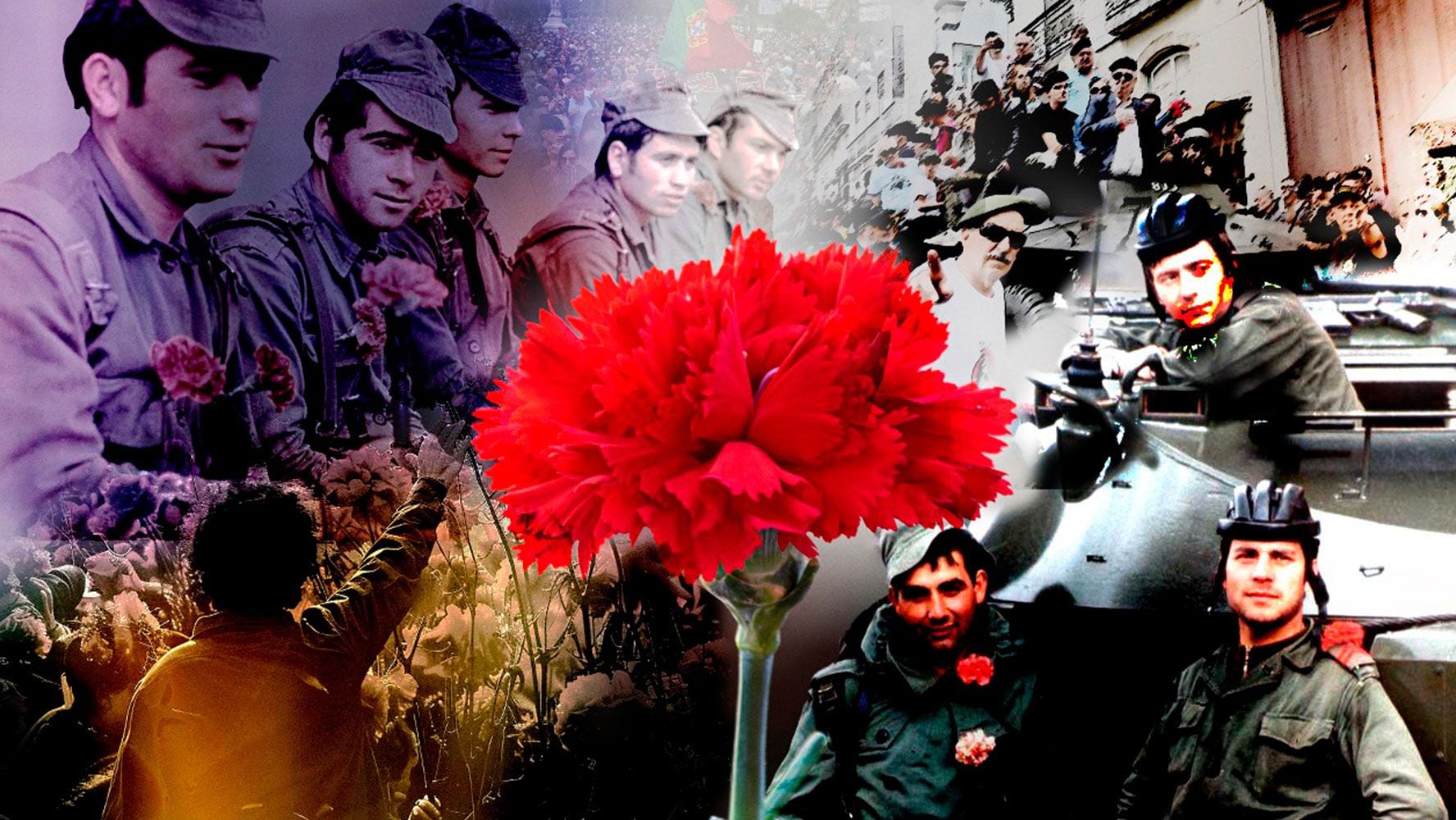
50 years ago, accompanied by the programming of a song banned by the official censorship of the Portuguese dictatorship, the least bloody revolution in history began and which would be a role model for what would later be democratic transitions in countries like Spain. 50 years ago the song Grandola Vila Morena – which was banned – served to bring together the Portuguese military forces to begin taking positions in Lisbon and the entire country and end the oldest right-wing dictatorship in all of Europe. At the time, Portugal was governed by the dictatorship known as the New State regime, which was in power for 48 years until the Armed Forces Movement decided to restore democracy to the Iberian country. All provinces, with the exception of Madeira and Macau – where the Portuguese had a strong presence – achieved their independence between 1974 and 1975. Macau was returned to China in 1999 and Madeira remains the only territory that Portugal owns outside of Europe. .
During the 20th century, the Portuguese was one of the great colonial powers in the world, having interference in the African continent and even in Asia, as is the case of Macau. In addition, they were allies of the Franco dictatorship through the signing of a mutual defense treaty called the Iberian Pact. At that time and prior to the revolution, Portugal was a nation in the hands of the dictator Marcelo Caetano and it was a country that was slowly bleeding away in order to maintain its increasingly less relevant power around Africa and Asia. The political and social sclerosis suffered by the Portuguese nation was increasingly exhausting Portuguese society and making any desire or hope for development impossible.
Despite its proximity, Portugal was never dominated by Spain. Portugal, unlike its Spanish counterpart, was not a nation in which Cainism prevailed. It is a country known as a land of compadres and a society based or administered more under English influence than Spanish or French. Portuguese Army officers had been immersed in civil wars in Africa for more than 15 years while the government’s coffers were gradually bleeding. It seemed unsustainable that such a small country could sustain colonial influences as great as those of the dictators of the New State regime. Furthermore, we must not forget that in 1974 the struggles inspired by the difference between communist, socialist and capitalist models nourished the main weapons not only of the guerrillas, but also of the liberation movements.
The Portuguese, who at that time had the Army and the police forces in their hands, those in charge of maintaining order within the country, decided that there was no possibility of continuing to have the nation under the bleeding that the dictatorship was causing. by Caetano. On April 27, 1974, two days after the Portuguese revolution process began, some journalists – among them the correspondent of Le Monde José Antonio Novais and the defense lawyer of General Humberto Delgado, the Portuguese Air Force general murdered by the political police of the Portuguese dictatorship in Spanish territory – we were able to walk across the border strip between Spain and Portugal. From there, we were able to walk from Elvas to Lisbon intercepted by several peasant hostages who – with shotguns in their hands – kept watch and made sure they knew if the troops and military trucks escorting us were for or against the revolution.
On the morning of April 27 we were able to reach Lisbon and that same day the great demonstration of freedom took place from Praça Marquês de Pombal to Pedro IV Square – or also known as Rossio Square, which was where I was walking Fernando Pessoa–; For the first time, Portuguese tanks escorted a million Portuguese who demonstrated with the muzzles of cannons full of carnations calling for democracy. At the same time, Europe was at its peak between the communists and the capitalists. Likewise, there was a time in which the liberation and anti-colonial movements were managed as part of the general struggle of the domino theory that was managed, in the last year of the Vietnam War, by the US State Department.
I don’t remember more exclusive moments than those that meant witnessing how the tanks, with carnations in their cannons, escorted the people’s demonstration. I have to confess that there, at a young age, I understood the difference between living in a country where you could choose, where you could have rights and not just obligations and where no one would forcefully impose on you what you had to think. That collective feeling became something radical and, two years later, caused the entire Iberian Peninsula – after the death of General Francisco Franco – to come, like a dry meadow, to the end of the dictatorship. From that moment on, the refreshing waters of democracy rained completely on Spanish and Portuguese territory. That afternoon of April 27 between Praça Marquês de Pombal and Rossio Square, not only what had been achieved by the Portuguese people was celebrated, but also the hope that the European dictatorships would begin their concluding stage. It was very exciting to witness that, just three days after the Caetano dictatorship came to an end, the big screening of films like The great Dictator by Charles Chaplin and films that had never been able to be screened on the peninsula due to the dictatorships present in Spain and Portugal.
The opportunity had arrived to do everything that until then had been prohibited, to watch movies that could not be done before, to be able to choose to read books to one’s taste and the opportunity to conquer individual freedoms and wills. At that moment, 50 years ago, the fulfillment of the dream postponed by the Spanish and Portuguese of belonging to the Europe of freedoms began.
